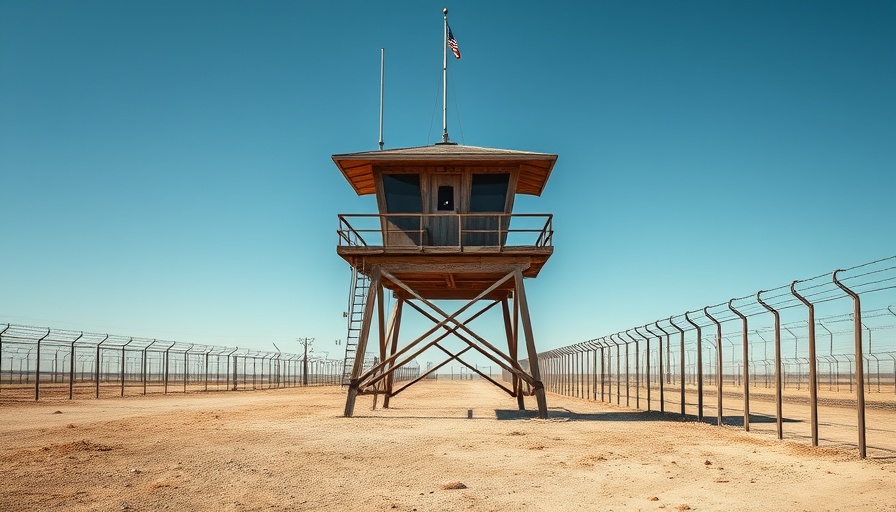
Hunger Strike Sparks Action in California Prisons
In a significant protest against growing restrictions in California prisons, inmates have initiated a hunger strike, marking the most intense response from the prison population since restrictions became stringent post-COVID-19. As the California Department of Corrections and Rehabilitation (CDCR) implements rules such as increased lockdown hours and diminished access to physical activity programs, prisoners say these measures severely impact their mental and physical well-being.
The Background of the Hunger Strike
The hunger strike resonates deeply with concerns regarding prisoner rights and the treatment of incarcerated individuals. Inmates, often already facing grim conditions, express that the pandemic has exacerbated their struggles. Restrictions that were initially designed to safeguard health are now perceived as punitive, stripping away essential programs meant to support rehabilitation and wellness. The strike, coordinated by various advocacy groups, calls for transparency and an end to practices deemed inhumane.
Importance of Mental and Physical Well-Being
This protest underscores a growing concern about the psychological and physical conditions faced by those behind bars. For many, the lockdowns have come at a cost—cutting off access to the outdoors and disrupting essential activities like physical exercise and social interaction. Increased isolation has raised alarms among human rights advocates who say that health is not merely the absence of illness but encompasses mental and emotional stability.
Diverse Perspectives on Prison Policies
While inmates and their supporters argue for the need for humane treatment and mental health support, some prison officials maintain that these restrictions are necessary to prevent the spread of COVID-19 and other communicable diseases. This divergence in perspectives raises important ethical questions about the role of rehabilitation versus punishment in prison systems.
A Broader Context: Prison Reform in California
The hunger strike is also a response to a larger movement calling for prison reform across the nation. Advocates highlight California's high incarceration rates and frequently demand changes that address systemic issues leading to disproportionately impactful practices on marginalized communities. As California expands prison budgets, advocates call for more funding directed toward community programs, mental health care, and support systems that can reduce recidivism rates.
Actionable Insights: What Can Be Done?
As this hunger strike continues, it's imperative for communities around Bakersfield and throughout California to engage in discussions about prison reform and the importance of advocating for humane treatment within the correctional system. Attending community meetings or engaging with local advocacy groups can be a starting point for citizens wanting to make a difference. Awareness can lead to legislative action that supports reform efforts aimed not just at better conditions in prisons but at addressing root causes of crime.
The Emotional Resonance of Incarceration
For many families with loved ones in prison, the implications of these restrictions are profound. The bond between incarcerated individuals and their families can deteriorate under oppressive conditions. Many families report feeling helpless as they watch their loved ones struggle without adequate support. This hunger strike serves as a call for empathy from the public, highlighting the human stories that often remain invisible in discussions around incarceration.
A Brighter Future: Opportunities for Reform
The rise in awareness surrounding these hunger strikes offers hope for potential reforms. With community action and robust advocacy, meaningful discussions about humane treatment can reshape California's prison system. Lawmakers and authorities have a pivotal role in implementing changes grounded in compassion, embracing rehabilitation, and investing in public health strategies that foster safety and wellness for all.
This hunger strike represents more than just a protest; it signifies a critical point in the ongoing dialogue about human rights within our prison systems. As citizens, we have the power to influence how we treat our incarcerated population, advocating for systems that uphold dignity and respect.
As we reflect on these issues, consider engaging with advocacy groups dedicated to prison reform. Your voice can make a difference.
 Add Row
Add Row  Add
Add 



Write A Comment